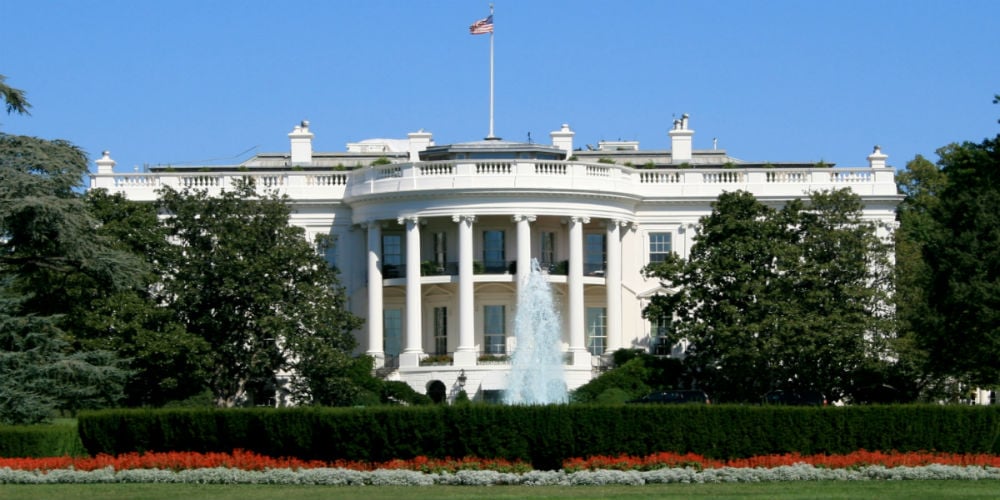Mr. Trump goes to Washington

After a tumultuous campaign in which he violated every rule of American politics, and with a promise to “drain the swamp” in the nation’s capital, Mr. Trump is going to Washington.
In a stunning victory that defied the polls and pundits, Donald J. Trump was elected as the 45th president of the United States. But he wasn’t the only winner in last month’s election. The Republican Party also won big and will maintain control of both the House and Senate, and for the first time since 1929, Republicans will now control the presidency, both houses of Congress, most governorships and state legislatures, and will pick the next Supreme Court justice.
President-elect Trump has indicated that his top three priorities are immigration, health care, and jobs, but many in the industry are wondering if a Trump presidency could derail the Department of Labor’s (DOL’s) fiduciary rule, and how a Trump presidency will affect retirement policy. At this point, there are no specifics proposals on retirement issues, but with health care a top priority of the incoming administration, health savings accounts (HSAs) may be the first to be affected.
Health Savings Accounts
A post to President-elect Trump’s official government website, www.greatagain.gov, elaborates on a key campaign promise, indicating that the Trump administration will work with Congress to repeal the Patient Protection and Affordable Care Act (PPACA) and replace it with a solution that includes HSAs. The website provides few details, but notes that the incoming administration will return regulation of health insurance to the states, work with Congress to enable people to purchase insurance across state lines, and work with Congress and the states to re-establish high-risk pools to ensure access to health insurance coverage for individuals who have not maintained continuous coverage.
Any effort to expand the role of HSAs in healthcare will be well-received by the Republican controlled House and Senate, who want to provide a more decentralized approach to healthcare, and by individuals and businesses seeking to lower their health insurance costs.
DOL Fiduciary Rule
There has been a great deal of speculation as to what the election of Donald Trump means for the DOL’s fiduciary rule. While Former Secretary of State Hillary Clinton supported the DOL’s fiduciary rule, writing in a New York Times op-ed that the rule is a “common-sense effort to prevent conflicts of interest” by financial managers, President-elect Trump has not taken a formal position on the fiduciary rule, although an adviser to the president-elect has stated that the rule should be scuttled.
That is easier said than done, given that the initial applicability date of the rule is April 10, 2017, less than 90 days after President-elect Trump takes office. The president-elect has a number of options available, including issuing an executive order that states that the guidance will not be enforced, or delaying or suspending the effective dates of the regulation. Congress also could enact legislation that would overturn the DOL’s fiduciary rule, but it is unclear if Republicans could garner enough Democratic support to meet the Senate’s 60-vote threshold to bring the bill to a final vote.
The DOL also could issue new regulations which would replace the current DOL fiduciary rule, just as the Obama administration replaced the fiduciary rules issued in 1975. That however, would be a time-consuming process, given the amount of time required for Senate confirmation of key DOL appointees. And, once the new administration’s appointees are in place, replacing the rule would require issuance of proposed regulations, a public comment period, and a review of the regulations by the Office of Management and Budget, prior to release of the final regulations. It is almost certain that the fiduciary rule would be in place for some time before it would be replaced by a new regulation. And, while the Trump administration could choose to not enforce the rule, it would not be able to exempt financial organizations using the best interest contract exemption from exposure to breach of contract and class-action lawsuits.
Comprehensive Tax Reform
One the campaign trail, both Hillary Clinton and Donald Trump spoke of the need for tax reform. Now, with Republicans in control of both the White House and Congress, chances for comprehensive tax reform have risen dramatically.
In a post-election interview reported in The Wall Street Journal, House Ways and Means Committee Chairman Kevin Brady (R-TX) indicated that a major tax rewrite is a top agenda item for next year, noting that House Republican staffers are already writing parts on the plan.
President-elect Trump’s tax plan is very similar to the tax reform blueprint that House Republicans introduced in June, in that both plans would lower individual and business tax rates. And, while Donald Trump’s plan proposed limiting the value of certain itemized deductions and exclusions—including the value of the exclusion for employee contributions to defined contribution plans and IRAs—changes to retirement savings incentives also are part of the House Republican plan.
Both plans are shy on specifics, but the House Republican blueprint would “continue the current tax incentives for savings” while the Ways and Means Committee works to consolidate and reform the multiple different retirement savings provisions in the current tax code to provide for effective and efficient incentives for savings and investment. This could result in significant changes to employer-sponsored retirement plans if Congress decides to simplify the plans by adopting one set of rules to cover all plan types.
The blueprint also calls for the creation of a more general savings vehicle—such as Universal Savings Accounts—to which individuals could contribute, and which would allow withdrawals of contributions and earnings at any time, for any reason, without penalty. Creation of these new savings accounts with their greater flexibility for penalty-free withdrawals would likely have a significant impact on IRAs.
Once the new Congress convenes in January, the president-elect is sworn in, and the new administration’s political appointees are in place, we will have a clearer picture of how a Trump presidency will affect retirement policy. Stay tuned.





